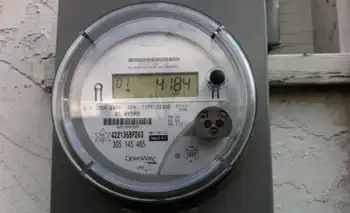Law made utility shut-offs easier
The bill came about after Philadelphia Gas Works persuaded Republican House Speaker John Perzel that it needed protection from customers who were gaming the system to avoid paying their bills. PGW pointed to its extraordinarily high level of write-offs for uncollectible bills. In 2004, those write-offs amounted to 11.25 percent of PGW revenues.
Perzel's original bill to make service shut-offs easier affected only PGW. Other electric and gas utilities, such as Pennsylvania Electric Co., clamored to be let in on the legislation, even though state Public Utility Commission statistics showed that their write- offs for uncollectible bills were in what business experts consider a normal range of 2 percent to 3 percent of revenues.
Blaine Uplinger, a lobbyist for FirstEnergy Corp., called the bill an effort to "crack down on people who are eluding payment, but have the ability to pay," not the truly poor.
"We have been a longtime advocate for people who can't pay their bills," Uplinger said. "Our own employees contribute."
FirstEnergy owns Pennsylvania Electric Co., Metropolitan Edison Co. and Pennsylvania Power Co. in the state.
Gov. Ed Rendell signed the bill after Perzel removed some of the more-criticized provisions, including a $40 fee for filing complaints about utilities with the PUC. He also urged dubious legislators to support the bill, saying it would address the "problem of rising utility bill delinquencies" while ensuring that electric and gas service remained available to "customers with legitimate financial, medical and other problems."
The Chapter 14 law took effect Dec. 14. In the first four months of this year, utility shut-offs soared 113 percent from the same period in 2004.
Then came a tragedy that has defined the new law in the eyes of many. On May 14, fire destroyed a house in Hastings, Cambria County, killing four people and seriously injuring two others.
Pennsylvania Electric Co. had shut off power to the house on May 11, and the family had left a candle burning in the bathroom for light. The family cat is believed to have nudged the candle, causing it to tip over.
Recently, the PUC said it plans to fine Penelec $250,000 for repeated violations of state law and administrative errors that preceded the Hastings shutoff.
The utility failed on several occasions to refer the family, which had total annual income below 150 percent of the federal poverty level, to its own community assistance program, the PUC said. That program could have lowered the family's electric bill to a more affordable level and might have averted the shut-off, officials said.
Related News

U.S. power demand seen sliding 1% in 2023 on milder weather
WASHINGTON - U.S. power consumption is expected to slip about 1% in 2023 from the previous year as milder weather slows usage from the record high hit in 2022, the U.S. Energy Information Administration (EIA) said in its Short-Term Energy Outlook (STEO).
EIA projected that electricity demand is on track to slide to 4,000 billion kilowatt-hours (kWh) in 2023 from a historic high of 4,048 billion kilowatt-hours (kWh) in 2022, before rising to 4,062 billion kWh in 2024 as economic growth ramps up.
Less demand coupled with more electricity generation from cheap renewable power sources and lower natural gas prices is forecast…





